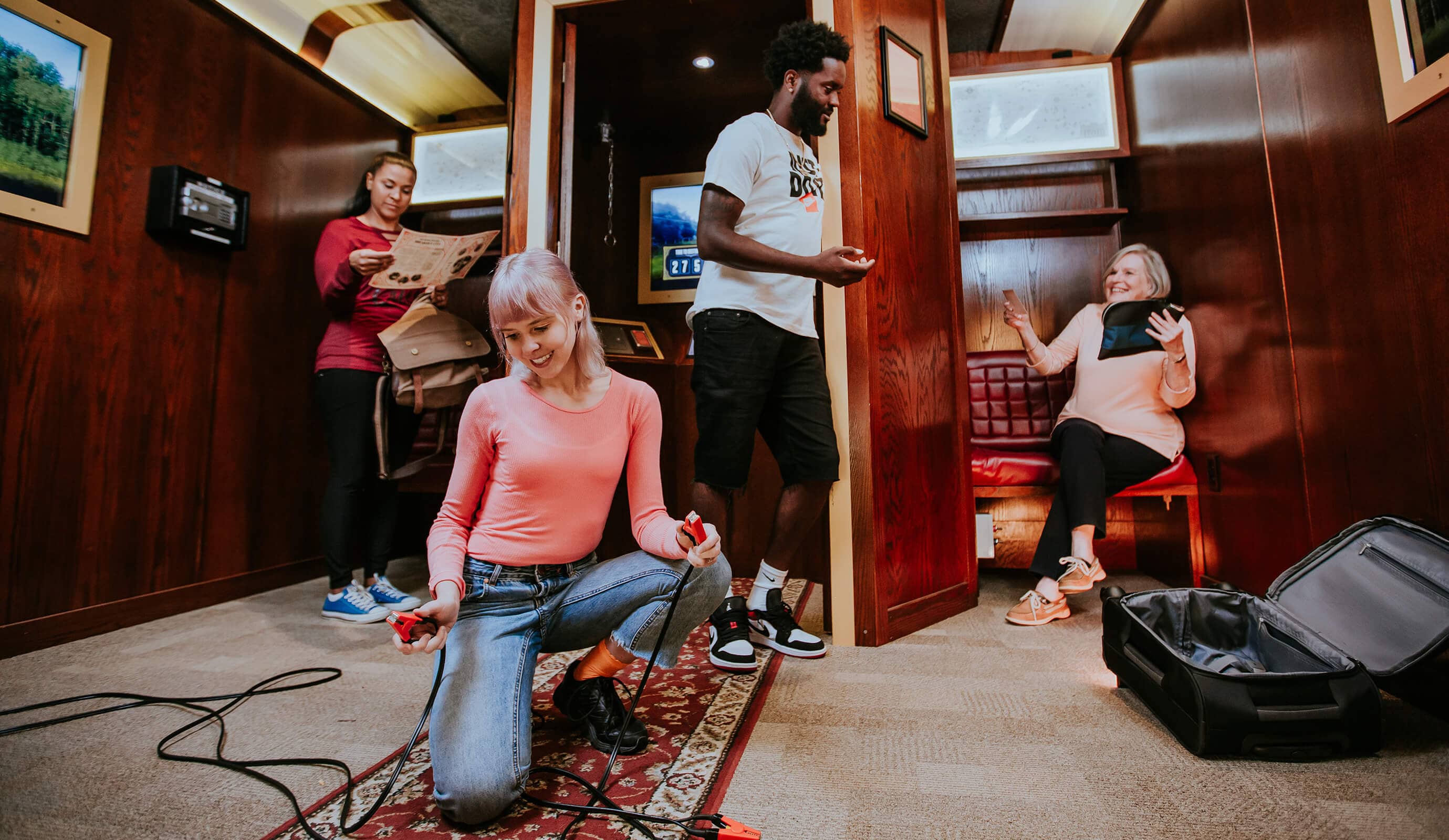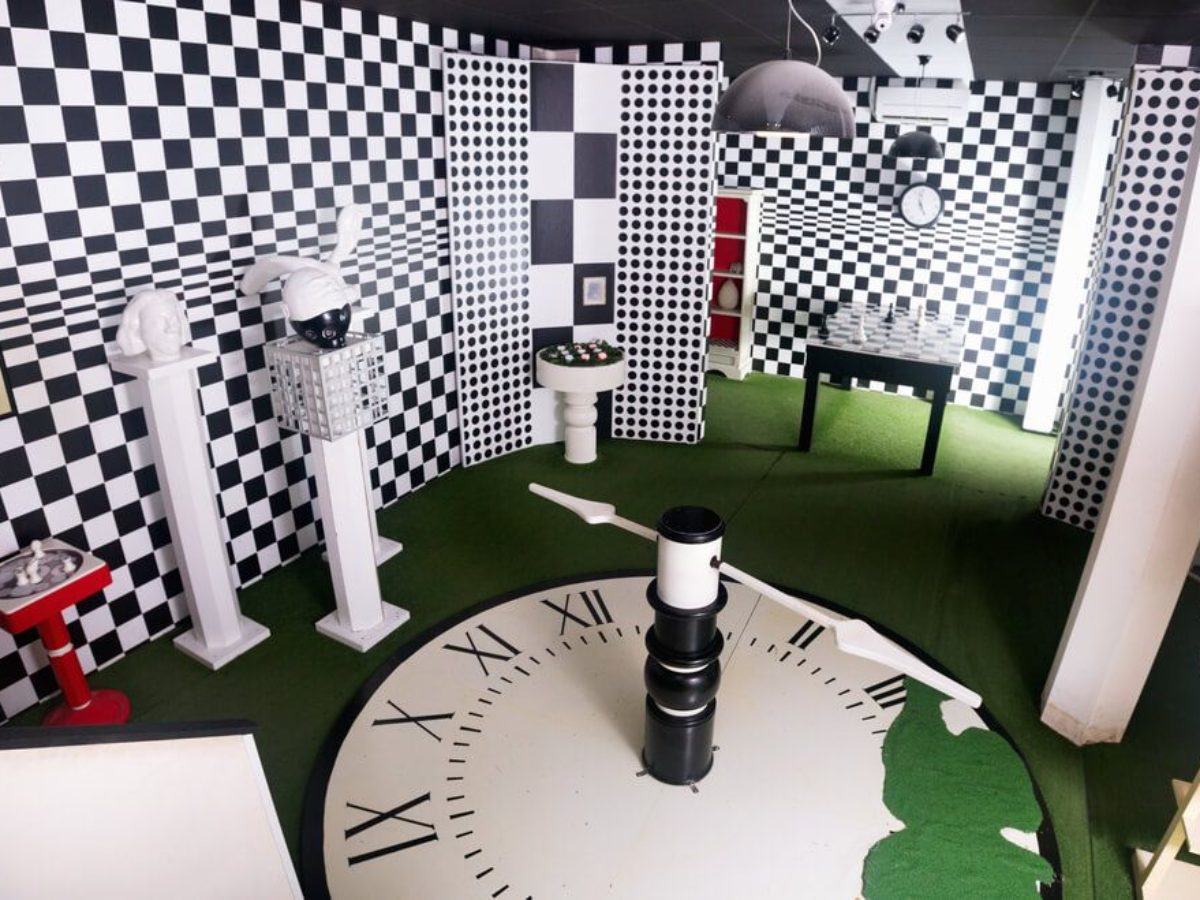Enjoyable and Challenging Escape Room-- Strategy Your Next Adventure
Enjoyable and Challenging Escape Room-- Strategy Your Next Adventure
Blog Article
Group Methods: Exactly How to Team up Effectively in a Getaway Space
Teams need to actively pay attention to each participant's insights, appoint functions that line up with individual strengths, and keep normal check-ins to ensure emphasis and avoid redundancy. By fostering an atmosphere that values cohesion and versatility, teams can dramatically increase their effectiveness and success rates.
Establish Clear Interaction

To facilitate clear communication, it is important to assign a main point of contact for information circulation. Short, focused updates from each group member can keep the group educated without overwhelming them with info.

Designate Duties Purposefully
While clear communication establishes the structure for effective team effort, designating roles tactically makes sure that each staff member's staminas are made use of efficiently. In a retreat room situation, the time-sensitive and complicated nature of obstacles requires an efficient method to job delegation. By recognizing and leveraging individual expertises, teams can maximize their problem-solving capacities and improve general performance.
Someone with an eager eye for information could excel in discovering hidden things, while a logical thinker could be better matched to solving challenges. This role typically calls for solid organizational and interpersonal abilities.
Second, make sure that roles are versatile and adaptable. As brand-new challenges arise, the group has to have the ability to pivot, reallocating jobs as needed. This versatility aids keep energy and avoids bottlenecks that could happen as a result of inflexible duty tasks.
Ultimately, a strategic approach to duty assignment not only optimizes the toughness of each employee yet likewise cultivates a natural environment, driving the group in the direction of an effective retreat.
Use Diverse Abilities
Recognizing and harnessing the varied abilities within your team can considerably elevate your performance in a retreat space. Each group member brings special strengths to the table, and effectively leveraging these capacities can expedite analytic and boost total efficiency. A team participant with strong logical abilities could excel at decoding intricate codes or patterns, while one more with eager observational capacities might promptly identify covert clues that others might neglect.
Reliable interaction is essential to utilizing these varied skills. Motivate employee to voice their insights and ideas immediately, ensuring that all potential services are thought about. This inclusive technique cultivates a dynamic environment where creative thinking and critical thinking can thrive. In addition, assigning tasks that line up with each member's toughness can avoid traffic jams and guarantee that progression is continual.
Moreover, variety in abilities frequently converts to variety in assuming designs, which is invaluable in an escape space setting. While some obstacles may need sensible thinking and precision, others may profit from creative and association of ideas. By acknowledging and leveraging this diversity, groups can resolve a more comprehensive range of difficulties extra efficiently, therefore enhancing their chances of an effective retreat.
Manage Time Efficiently

First, allot first minutes for a quick survey of the area. Determine visible problems and divide tasks based on team members' staminas, guaranteeing that nobody is idle. Set internal time checkpoints visit site to assess progress occasionally; as an example, purpose to have half the challenges solved by the mid-point of the game. This practice can aid maintain the group focused and protect against time from slipping away undetected.
Furthermore, stay clear of one-track mind. If a challenge is taking as well long, rotate staff member or relocate on to one more challenge, returning later on with fresh perspectives. Interaction is vital-- maintain everyone upgraded on solved puzzles and staying tasks to avoid redundant efforts.
Last but not least, utilize any hints or clues sparingly yet tactically - best escape room. Our site Knowing when to ask for aid can save useful time. By sticking to these time administration principles, groups can significantly enhance their possibilities of a successful and enjoyable getaway room experience
Debrief and Reflect
Reflection is a necessary element of team development and improvement in the context of escape spaces. Once the obstacle is completed, whether effectively or otherwise, it is critical for the group to take part in an organized debriefing session. This process enables employee to examine their performance, determine staminas, and identify areas for enhancement.
Start the debrief by discussing what went well. Highlight specific instances of efficient interaction, analytic, and cooperation. Identifying these favorable behaviors strengthens them and motivates their repeating in future challenges.
Review moments of confusion, miscommunication, or inefficient techniques. Encourage an open and positive discussion where group members can share their perspectives without concern of objection.
Conclusion
In final thought, successful cooperation in a getaway area is predicated upon clear interaction, critical function tasks, the my response efficient application of varied abilities, and efficient time administration. By developing a cohesive and adaptive team atmosphere, the probability of efficiently fixing problems and accomplishing the goal of getting away the area is substantially boosted.
Report this page